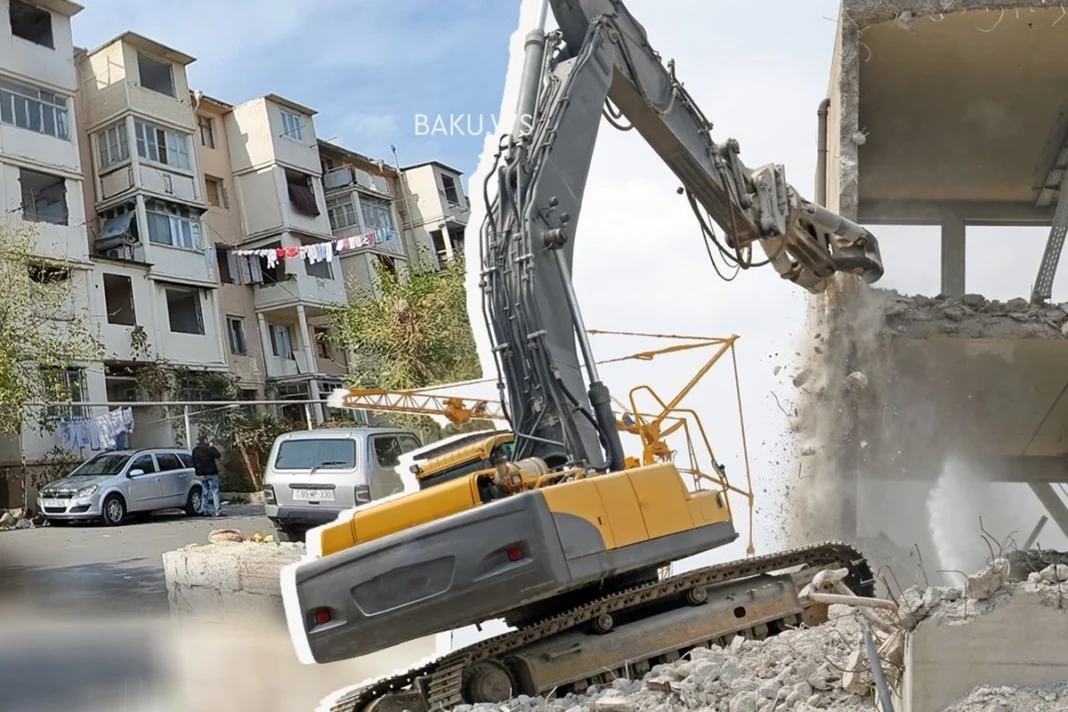BAKU, July 18, 2025 — A new phase of Baku’s urban redevelopment is underway in the Khutor neighborhood of Binagadi district, but what city officials are calling “revitalization” is being met with growing concern and criticism from local residents and rights advocates.
As reported by İqtisadiyyat.az, municipal authorities have already begun technical surveys and measurements on Rashid Mammadov Street, marking the beginning of a sweeping demolition plan. The area has been included in a comprehensive urban renewal program aimed at modernizing infrastructure and optimizing land use.
Yet for the residents of Khutor, the process has been anything but transparent. Despite visible preparations and a flurry of activity on the ground, many say they have not been provided with any official information about compensation packages or resettlement conditions.
“Officials are measuring our homes, but no one tells us what they plan to do with us. Are we supposed to just wait to be evicted?” one resident told local media.
Criticism has intensified over the government’s failure to communicate directly with affected households. Urban policy experts and civil society groups warn that this pattern of silent demolition risks eroding public trust and violating citizens’ property rights.
“Urban redevelopment should not come at the cost of people’s dignity,” said one housing advocate. “Lack of transparency and failure to disclose compensation terms is unacceptable. People are left in legal limbo.”
The situation in Khutor echoes similar complaints in Nasimi district, where demolition on Jalil Mammadguluzadeh Street (“Papanin”) began without meaningful consultation with residents. In both cases, authorities have yet to publicly disclose timelines, relocation options, or legal guarantees.
While the government touts these projects as critical for Baku’s modernization, the absence of clear safeguards for residents has triggered fears of forced displacement and financial loss.
Rights organizations are now urging authorities to halt all demolition efforts until comprehensive compensation plans are made public, and affected communities are engaged in a transparent, inclusive dialogue.


